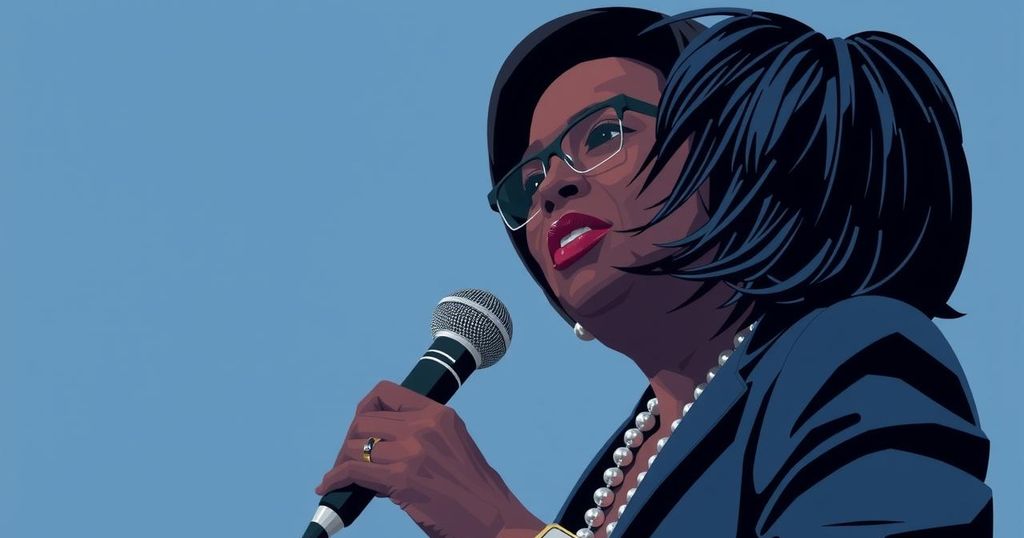Arab American Discontent: A Shift in Political Allegiance in Dearborn

Following Donald Trump’s electoral success in Dearborn, Michigan, prominent Arab American leaders express disillusionment with the Democratic Party, citing a disconnect between party leadership and community concerns. Grassroots movements and alternative coalitions are emerging in response to ongoing frustrations over foreign policy and electoral representation. While some community members support Trump as a means of protest, many remain skeptical about the future direction of political engagement and their relationship with the Democratic Party.
On election night, Abbas Alawieh, a Palestinian-American and former chief of staff for Representative Cori Bush, witnessed Donald Trump’s unexpected electoral success in Dearborn, Michigan. Frustrated by President Biden’s unwavering support for Israel, Alawieh co-founded “Listen to Michigan,” a coalition urging Democratic voters to signal their discontent by voting “uncommitted” in the presidential primary, resulting in over 100,000 votes cast this way. Despite their efforts, the desire for a Palestinian speaker at the Democratic National Convention was met with rejection from party leaders, enhancing a growing rift between Democratic leadership and its base constituencies. In Dearborn, a traditionally Democratic stronghold, Trump’s victory—42.5 percent versus Kamala Harris’s 36 percent—has left many Arab American voters contemplating their political affiliation. Residents express frustration that despite both Democratic and Republican administrations continuing arms support to Israel, the absence of significant policy change resulted in feelings of disillusionment among local voters. This sentiment is echoed by Alawieh, who, despite voting for Harris, remains skeptical about her potential to effect real change, given the disparities in foreign policy that impact his family. Moreover, Layla Elabed, a leading voice in the anti-war movement and sister of Congresswoman Rashida Tlaib, chose to leave her top ballot blank in protest against the lack of acknowledgment for the anti-war movement by Democratic candidates. Her heartbreak stems from a sense of failure within the anti-war initiative that she feels overshadowed the electoral process, reflecting a profound disconnect between the party’s messaging and its core constituents’ values. James Zogby, founder of the Arab American Institute, articulated his concern over the party’s reliance on a detached consultant class, which he argues compromises the Democratic Party’s relationship with its base. He criticizes the party’s failure to court Arab Americans in key areas, lamenting that their disengagement resulted in missed opportunities. Rola Makki, a Lebanese-American Republican, also expressed mixed emotions towards Trump’s classification, highlighting current global tragedies affecting her community. As voters reflect on their political choices, there is a pervasive sense of uncertainty regarding future engagement. Many, including Alawieh, question whether Trump’s administration will address their concerns or exacerbates existing fears. Thus, the landscape of political engagement in Dearborn demonstrates a complex interplay of community loyalty, voter mobilization, and the evolving political identity of Arab Americans.
The article highlights the shifting political dynamics in Dearborn, Michigan, particularly within the Arab American community following the recent electoral results. Initially perceived as a Democratic stronghold, the city’s political landscape is evolving, with both dissatisfaction towards the Democratic leadership and unexpected support for Trump, a candidate previously associated with anti-Muslim rhetoric and policies. This discontent has sparked grassroots movements, prompting a re-examination of political strategies among Democratic leaders.
In conclusion, the electoral outcomes in Dearborn signal a critical juncture for the Democratic Party, necessitating a reconnection with its base, especially within Arab American communities. The sentiments expressed by local leaders underscore an urgent need for the party to listen to and address the concerns of these constituents. As voter engagement shifts, the future of the Democratic Party depends on its ability to foster genuine dialogue and to adapt to the evolving political landscape shaped by the constituents’ values and experiences.
Original Source: slate.com








